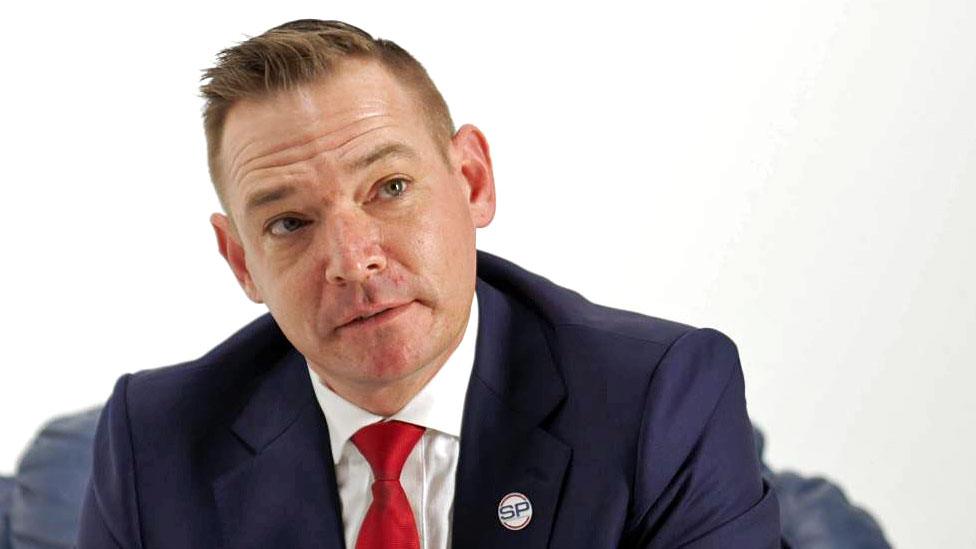Covid: Cardiff man had death threats after losing family
- Published
Francis Goncalves was subjected to abuse and death threats after his family died of Covid
A man whose parents and brother all died of Covid within seven days of each other faced death threats and abuse online after sharing what happened.
Francis Goncalves' dad Basil, 73, mum Charmagne, 65, and brother Shaul, 40, died in hospital in July 2021.
He shared his story as they had all refused a vaccine. Francis blames misinformation as one of the reasons.
The abuse he suffered has prompted him to launch a petition to eliminate anonymous trolls online.
The chef, from Cardiff, is asking the UK government to force people who register for a social media account to upload an identifying document such as a passport.
When his relatives fell ill at home in Portugal, Francis was originally unable to travel to see them due to Covid restrictions.
His brother died on 17 July, followed by his father three days later, followed by his mum on 24 July.
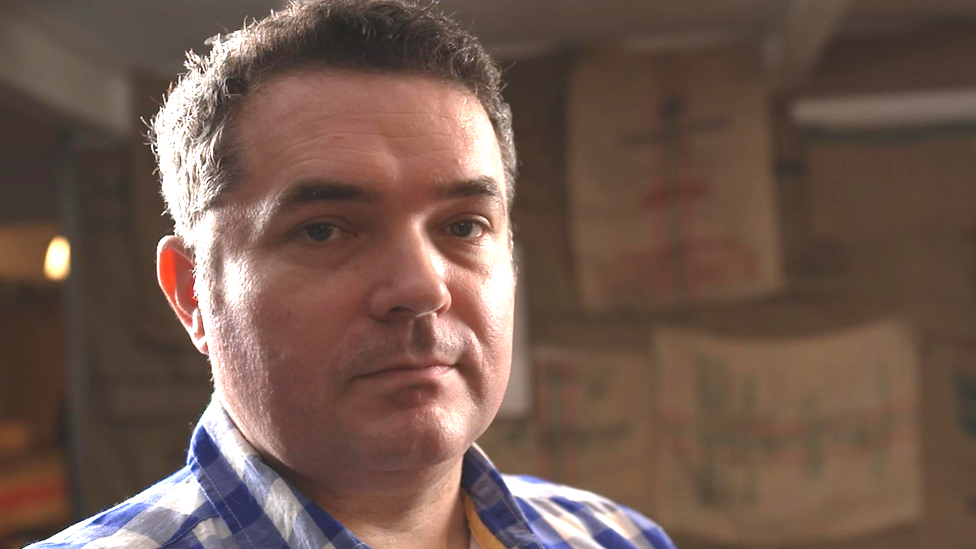
Francis Goncalves faced a barrage of abuse online after his family died from Covid
Francis said: "You can either be quiet and move on with your life or do something and I decided to spread the message.
"Anyone who loses a family member will say the same thing: 'It'll never happen to me.' But all of a sudden it did and I want to help others not go through the same."
Upon posting about what had happened to him, amid the positive reactions from others online, he noticed his story "drew a lot of negative press".
He said he was accused of being part of a government organisation or that he had made up his family.
"Then the death threats came, and threats to harm my family, those died out pretty shortly after I got the police involved - but the accusations carried on," he added.
This prompted him to join a group that challenges misinformation online: "It makes us feel like we're doing something to stop this happening again."
He hopes his petition - launched this week - will mean those who spread lies or abuse others online will be held accountable.Under his proposals, people's personal details would not be visible to the public.
The UK government said its Online Safety Act, external forced social media companies to "proactively remove illegal content, including harassment and death threats" and remove illegal misinformation and disinformation "as soon as they become aware of it".
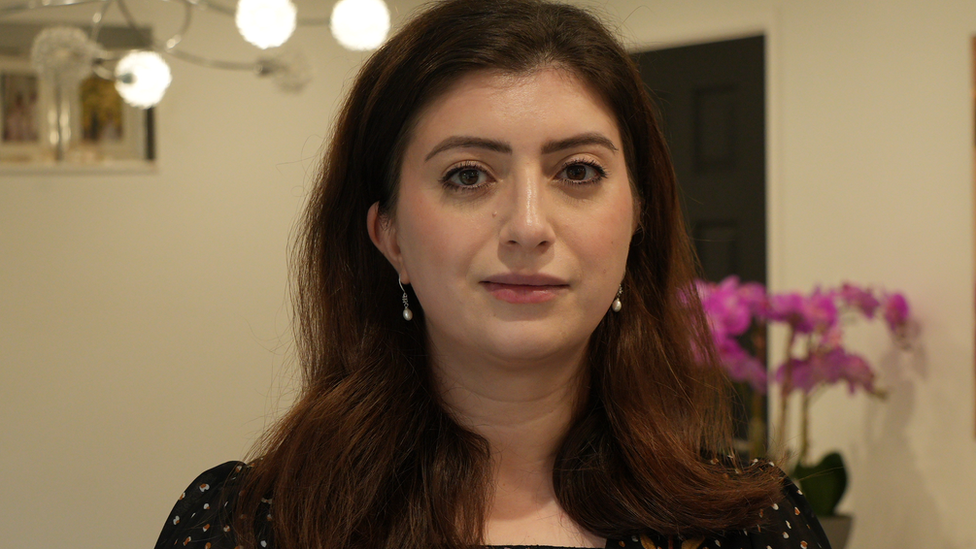
Dr Bnar Talabani said people who shared misinformation were those who most needed to see scientific-based content
Dr Bnar Talabani, a clinical lecturer at Cardiff University, has also been on the receiving end of abuse and death threats after trying to dispel misinformation.
She uses TikTok to share videos relating to health issues, which she started doing during the pandemic.
After carrying out TV and radio interviews, she said she gets a "barrage of feedback" ranging from being accused of being paid to say certain things to "threatening me or my family's lives".
Dr Talabani said her first viral video "went viral because it was filled with abuse and misinformation being shared in the comments".
She said she had personally seen people refuse the Covid vaccine out of "a lack of trust" and then subsequently die.
Misinformation "has chipped away at the public's trust" in healthcare professionals, so there is "a lot of work to be done to address this", she added.
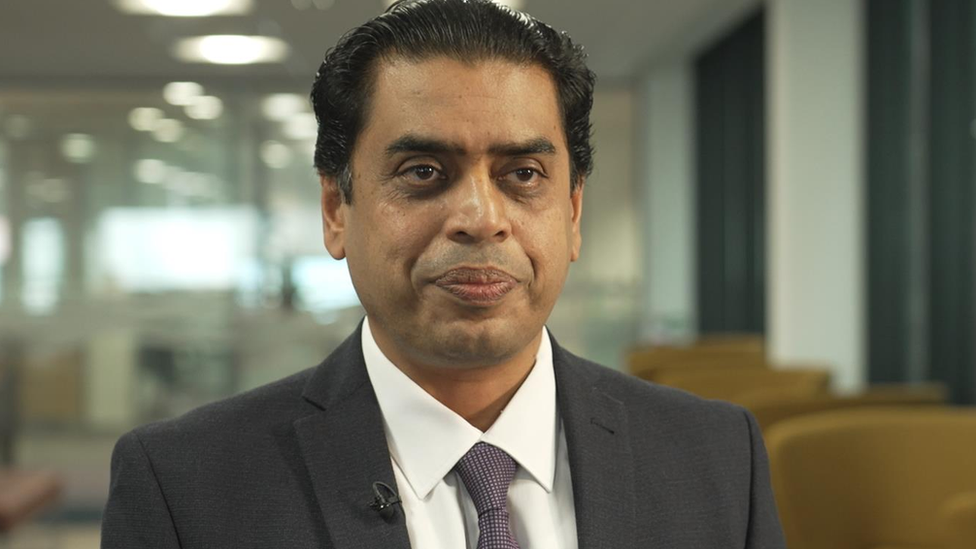
Dr Giri Shanker said misinformation was "a growing challenge for health professionals"
Dr Giri Shanker, director of health protection at Public Health Wales (PHW) said misinformation was "really dangerous" and "misleading people in the wrong way".
A PHW report in October found 89% of service users reported seeing vaccine-related misinformation in the past year.
It said parents of under-18s, people on universal credit and transgender people were more likely to be exposed to vaccine misinformation online.
Dr Shanker said it was "absolutely vital" to target those groups of people as false claims online "resulted in not just reduced vaccine uptake, but also denied access - delayed access - to healthcare".
He said PHW's plan to tackle the problem was to counteract it with facts backed up by science "in a way that is easily accessible and understandable".
- Published30 November 2023
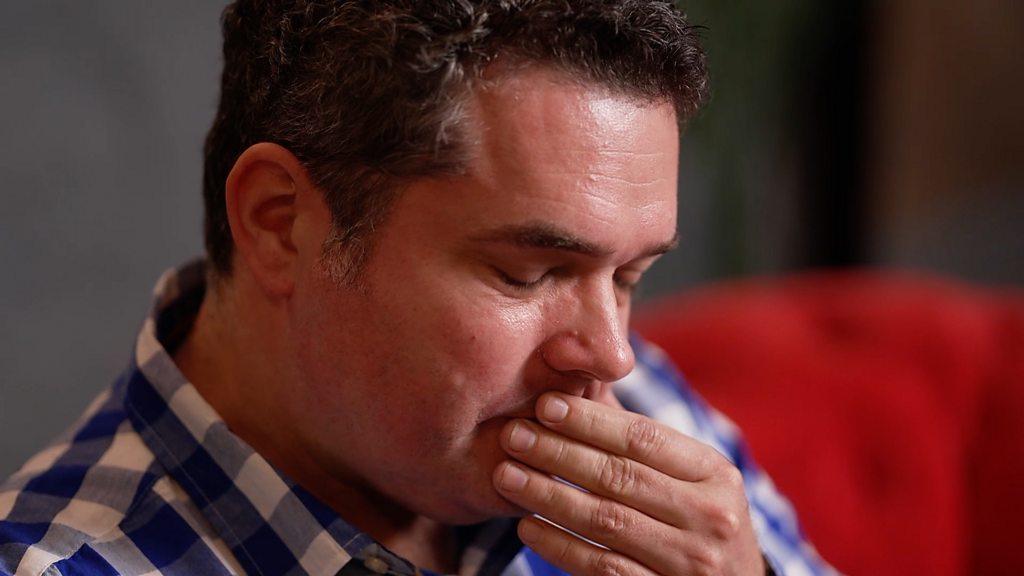
- Published30 June 2023
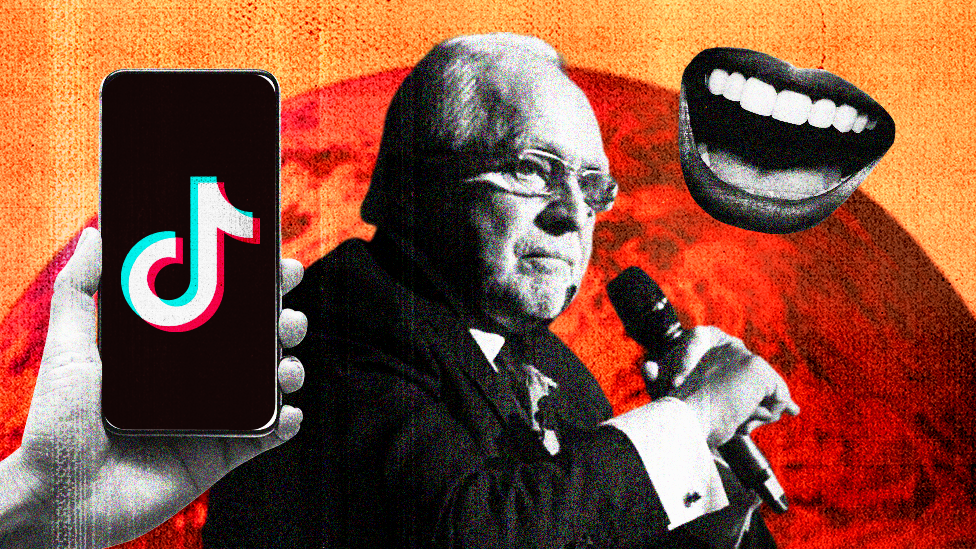
- Published27 June 2023
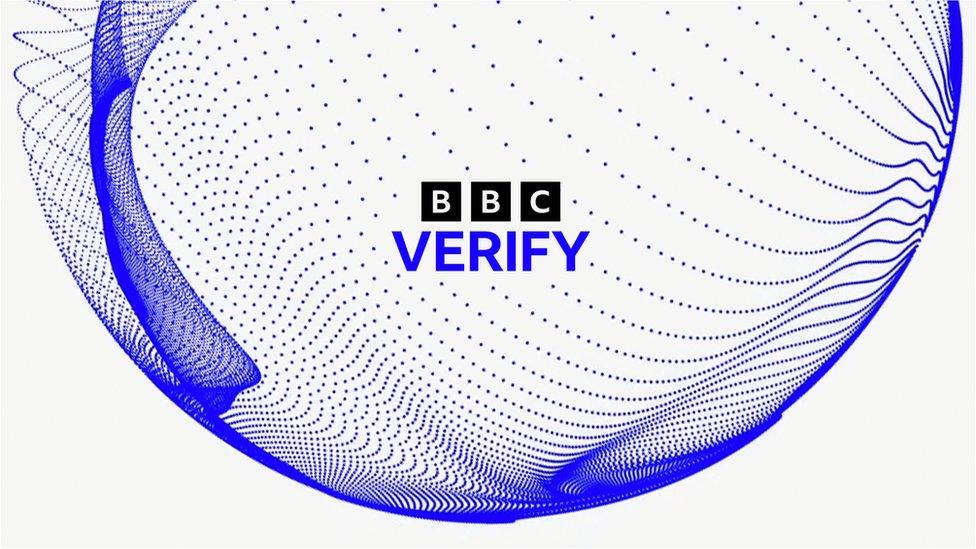
- Published4 May 2023
